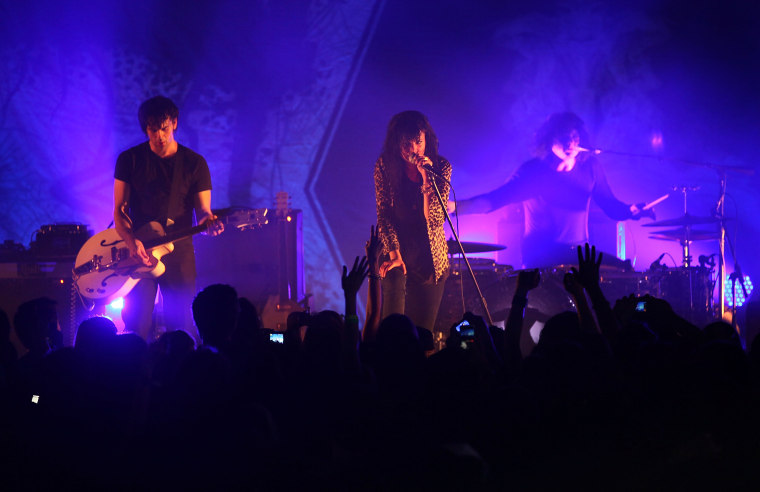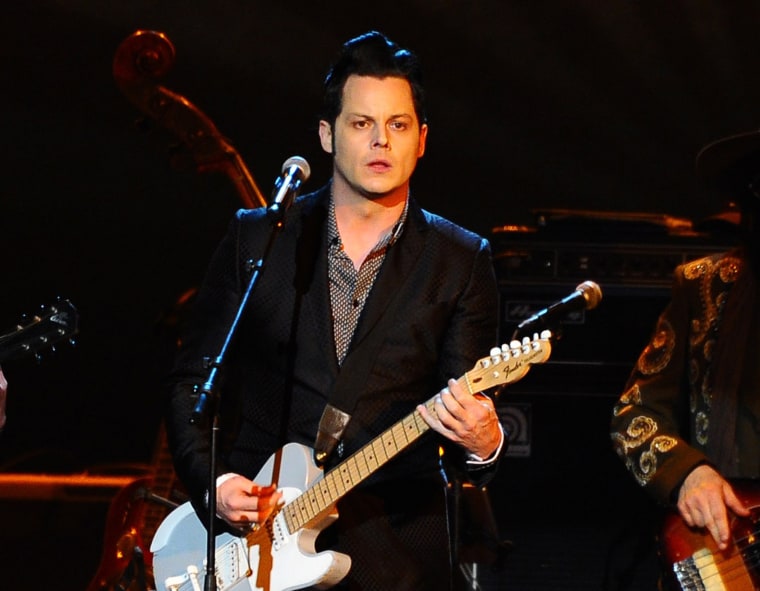Avid concertgoers should prepare to lose out on some bragging rights. Recently, former White Stripes frontman Jack White, who is about to go on tour in April, announced mandatory phone lock-ups upon entry to his concerts.
“We think you’ll enjoy looking up from your gadgets for a little while and experience music and our shared love of it IN PERSON,” White said.
How does this usually work? Immediately after bag inspection at security, you’re given a pouch to put your phone in and the guard locks it inside — the pouch stays in your possession. If you need to make an emergency call or when the show ends, you just walk out into the lobby and security will unlock and retrieve the pouch instantly with a special wand.
Moving images are experienced holistically as they trigger the neural networks of memories that include feelings, emotions and cognitions.
This practice is fast becoming commonplace, as artists have become weary of looking out unto a sea of raised lenses and blinding flashes in lieu of engaged fans singing along. It begs the question: why do we feel so compelled to photo-document or film moments like this instead of enjoying them?

Your Brain and Camera Phone at a Concert
Dr. Pamela Rutledge, author and media psychologist, says part of the appeal is the anticipation of being able to relive the event after it happens. “When someone takes a photo or a video, their attention is hyper-focused on what is in the lens. It’s not the same thing as ‘not paying attention.’ It’s paying attention to a select portion of the experience — things that are particularly exciting and meaningful. It’s a souvenir that will allow them to remember the event, but unlike a poster or other memento, the image capture will allow them to experience the event in a multi-sensory way because image, particularly moving images, are experienced holistically as they trigger the neural networks of memories that include feelings, emotions and cognitions,” she explains.
Contrary to what some performers think, some studies show filming these kinds of experiences can engage the viewer more intensely. One 2016 study set out to examine how taking pictures of both epic adventures (vacations, concerts) and mundane experiences (great looking meals) effected the experience itself, and it turns out those who took pictures found the experiences significantly more enjoyable because they were more engaged.
Contrary to what some performers think, some studies show filming these kinds of experiences can engage the viewer more intensely.
However, another, more recent study, also co-authored by Alixandra Barasch, assistant professor of marketing at NYU Stern, revealed that filming concerts or events with the intention of sharing the clips on social media actually diminished enjoyment of the experience, because it increased anxiety about what the reaction (likes) to the photo or clip might be.
Barasch, who has authored three research papers on this specific topic, adds, “When people hold their phones up constantly, or want to get the perfect image to show their friends, it removes them from the experience. There’s a trade-off — they’re willing to enjoy something less in the moment for the social media approval they might enjoy later.”
There’s a trade-off — they’re willing to enjoy something less in the moment for the social media approval they might enjoy later.
She also found searching for the perfect shot can diminish your ability to hear the music you came for. “Because we have limited attentional resources, taking photos can cause us to miss out on the auditory aspect of a concert,” she says.
Mind you, research shows our propensity to post these clips can benefit the artist in that it promotes items and experiences au gratis. “Clips of a concert or show are like a trailer for live events. It whets people’s appetites because these clips capture the movement and enthusiasm of the crowd,” Rutledge says.
She recommends performers weigh their own preferences against what the fans are able to take away and relive. “If a fan is really enjoying a performance and likes a performer, the ability to “own’ a tangible piece of the event increases the fan’s social capital and bragging rights and enhances the sense of fandom and commitment,” she explains.
You don’t need 70 photos of the same stage, you just need a memory cue that you saw Beyoncé
Barasch says, in a perfect world, fans would be allowed to take photos but would do it quickly and hold off on sharing them until the show ends. “You don’t need 70 photos of the same stage, you just need a memory cue that you saw Beyoncé,” she says.
Yet, we’re so addicted to photo taking and sharing, performers like Jack White might know best. “I could see some consumers getting upset because they want autonomy and freedom to do what they want, but I find that most people leave those experiences and feel very grateful to the person who asked them to put the phone away,” says Barasch. “It takes away the choice. People always appreciate not having to choose.”
Though it lacks the immediacy and reach, there’s something to be said for a good-old-fashioned word-of-mouth buzz — and actually hearing the music you came to see.
NEXT: Bored at work? Create a productivity soundtrack
Want more tips like these? NBC News BETTER is obsessed with finding easier, healthier and smarter ways to live. Sign up for our newsletter and follow us on Facebook, Twitter and Instagram.

